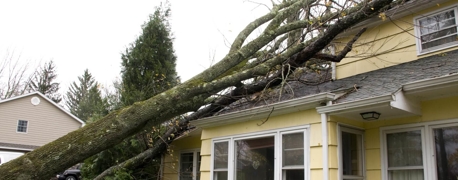9 Tips to Prepare for Hurricane Season

In May 2022, the National Oceanic and Atmospheric Administration (NOAA) predicted a 60% chance of an “above-normal” hurricane season. Hurricane Ida, which hit Louisiana in late August 2021, is considered one of the strongest hurricanes in U.S. history. Our firm is representing several cases related to crews that were stranded in Hurricane Ida as a result of poor preparation.
2023 is expected to bring a “normal” hurricane season, but preparation remains just as important. Even a normal hurricane season may bear one to four major hurricanes.
Poor preparation doesn’t just affect offshore workers. Hurricanes are the most destructive weather phenomena we face in Texas and Louisiana, but that doesn’t mean the destruction is inevitable. We’ve prepared a list of 9 things you can do to minimize the damage hurricanes cause.
1. Pay Close Attention to Weather Reports
The National Hurricane Center (NHC) is your best resource for up-to-date reports on where and when hurricanes arrive. The NHC was dead-on when predicting where and when Hurricane Ida would make landfall, which gave people days to prepare. By paying attention to weather reports, you’ll have a better idea of where to go if you need to evacuate (and whether you should shelter in place).
2. Take Steps to Ready Your Home
Hurricanes will push your home’s integrity to its absolute limits. To minimize damage, you’ll want to put your house in the best possible condition for withstanding brutal hurricane winds and heavy rains.
Here’s what we’d do to get your home hurricane-prepped:
- Clean gutters to prevent roof damage/flooding
- Hire professionals to anchor down your garage door, roof, and fuel tanks
- Bring patio furniture, plants, toys, and trash cans indoors
- Verify your home insurance coverage (flood and wind damage)
- Take pictures of the property for potential insurance claims
3. Involve Your Kids in the Prep
Preparing for a hurricane is best done by the whole family. There’s a practical reason for it (“many hands make light work”), but there’s also an emotional reason: if your kids are feeling nervous or anxious about the hurricane, asking for their help will make them feel more proactive and in control.
There’s an even more compelling reason to involve your kids: they’ll need to prepare for a hurricane as an adult in the future. Having them help today will make them more prepared when they face a hurricane on their own a few years down the line.
Some ways to involve the kids:
- Putting perishable food in coolers
- Clearing the gutters
- Bringing backyard items indoors
- Putting plywood on the windows
- Assisting you with double-checking the house is secure
4. Stock Up on Essentials
This one is a no-brainer, but it’s necessary to mention anyway: you need to buy supplies while presuming you’ll be without power or water for a few days. That’s the safest way to prepare. If you end up not needing some of these items for this hurricane season, most of them are good items to keep in your emergency bag anyway.
Here’s a preliminary list of what you should get:
- Water (a gallon per person per day
- Canned food and a manual can opener (please don’t forget the can opener)
- Battery-powered or hand-crank radio with extra batteries (for weather reports)
- Flashlight with extra batteries, or hand-crank flashlight
- Basic first aid kit
- Whistle (in case you need to call for help)
- Plastic sheeting and duct tape
- Moist towelettes (for cleaning without water)
- Garbage bags
5. Test Your Generator
We cannot emphasize this enough: if you have a generator, test it periodically. If you don’t have a generator but you plan on buying one, make sure you practice turning it on (and going over it with your spouse and kids) before putting your trust in it.
And, of course, stock up on enough fuel to run it for three days. Don’t worry about running your whole house—just enough power to run your fridge and a few electronics should be sufficient.
6. Trim Trees & Move Your Car
While you can’t prevent a hurricane from uprooting your tree entirely, you can make sure the tree’s largest branches are trimmed to keep them from striking your home or your neighbors. The best time to get your branches trimmed is before there’s a hurricane in the news. If you haven’t gotten them trimmed in a while, the second-best time to call is today.
The other thing to take care of is your car. If possible, park your car in the garage. If that’s not possible, park your car away from any trees or next to a building. The building provides limited protection from the wind, but it might be enough to keep your car from getting damaged.
7. Have Analog Backups of Important Info
It’s hard to overstate how much our daily lives rely on electricity. Our navigation systems, our access to medical documents, even our memories are stored on electronic devices. Hurricanes might rob you of power for a few days, so it’s smart to have a few things in analog form in case you don’t have a charger or a power bank on hand.
Here are some things to stock up on:
- Cash
- Physical roadmaps
- Important phone numbers on paper
- Power bank with multiple charges
- Directions to evacuation centers on paper
- Waterproof bag for essential electronics
8. Put Together a Pet Emergency Kit
If you end up needing to seek shelter, having emergency supplies for your pets is as important as having supplies for yourself.
Make sure to stock up on:
- A few days’ worth of canned pet food
- An extra half-gallon of water per day for your pet
- Water bowls/food dishes
- Your pet’s proof of vaccination
- A pet carrier
- Tags on your pet’s collar
- Recent photos of your pets
- Poop bags and puppy pads
- Bed, toys, and treats
A lot of pet care is managing their comfort in high-stress situations, so keep that in mind. For more hurricane preparation tips for pet owners, visit PetMD.com.
9. Collect Sentimental Items
This isn’t key to your survival, but it’s important nonetheless. Buy a waterproof bag and put your old photo albums, childhood keepsakes, and other sentimental items inside. Keep them in a high, dry place. You can put them in the attic, but keep in mind the possibility of leaks. Wrap the waterproof bag in plastic sheeting for extra security.
One of the hardest things about hurricanes is losing irreplaceable things. As tough as it is to lose windows or suffer car damage, those things are replaceable. Our pets, our photos of loved ones, and our loved ones themselves are not. When you’re preparing for a hurricane, prioritize the things you can’t replace, followed by the things you can.


